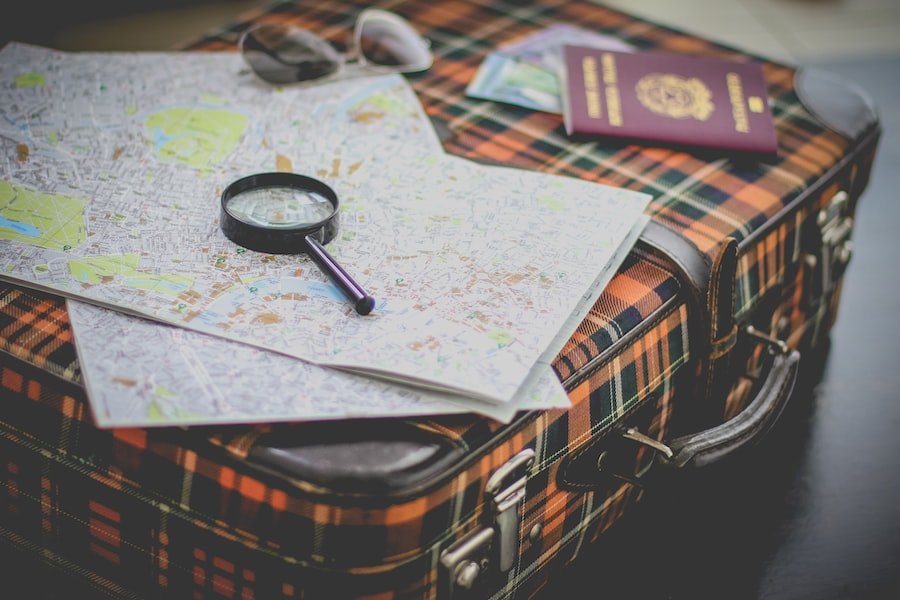

Travel Essentials in Chinese: Packing and Planning
Traveling to China can be an exciting and enriching experience, but it also requires careful planning and preparation. Knowing the essential travel tips and tricks in Chinese can help you navigate the country with ease and confidence. Whether you’re a first-time traveler or a seasoned explorer, having a basic understanding of the Chinese language and culture can make a significant difference in your travel experience.
Table of Contents
TogglePreparing for Your Trip: Planning and Researching in Chinese
Researching your destination and planning your itinerary in advance can help you make the most of your trip. By using Chinese travel websites and apps, you can find the best deals on flights, accommodations, and attractions. These platforms often offer exclusive discounts and promotions for local travelers, so being able to navigate them in Chinese can save you money.
Additionally, learning about the local customs, traditions, and etiquette can help you avoid cultural misunderstandings and show respect to the locals. Understanding the dos and don’ts of Chinese culture can enhance your travel experience and make interactions with locals more enjoyable.
Packing Tips: How to Pack Efficiently and Effectively in Chinese
Packing light and smart can make your trip more comfortable and hassle-free. Knowing how to pack for different seasons and activities in China can also help you avoid overpacking. For example, if you’re traveling to China during the winter months, it’s essential to pack warm clothing such as coats, hats, gloves, and scarves.
Furthermore, being able to communicate with locals about your travel essentials can be helpful if you need to purchase any items during your trip. Knowing how to ask for specific items or sizes in Chinese can make shopping easier and more efficient.
Essential Documents: Passports, Visas, and Travel Insurance in Chinese
Having the right documents and insurance coverage is crucial for a smooth and stress-free trip. Before traveling to China, make sure you have a valid passport with at least six months of validity remaining. Additionally, depending on your nationality, you may need to apply for a visa in advance. Knowing how to navigate the visa application process in Chinese can save you time and money.
Travel insurance is also essential to protect yourself against unexpected events such as medical emergencies or trip cancellations. Understanding the terms and conditions of your travel insurance policy in Chinese can help you make informed decisions and ensure that you have adequate coverage.
Language Learning: Taking Chinese Classes Before Your Trip
Learning some basic Chinese phrases and expressions can help you communicate with locals and navigate the country more easily. While many people in China speak English, especially in major cities and tourist areas, knowing a few key phrases can go a long way in making connections and showing respect to the locals.
Taking Chinese classes or using language learning apps can be a fun and rewarding way to prepare for your trip. Learning the basics of Mandarin, such as greetings, numbers, and common phrases, can make a significant difference in your ability to communicate and understand the locals.
Cultural Awareness: Understanding Chinese Customs and Etiquette

Understanding Chinese customs and etiquette can help you avoid cultural misunderstandings and show respect to locals. For example, it’s important to be aware that the concept of personal space may be different in China compared to Western countries. Being comfortable with close physical proximity and understanding the concept of “saving face” can help you navigate social interactions more smoothly.
Learning about Chinese food, festivals, and traditions can also enhance your travel experience. Trying local dishes, participating in traditional festivals, and visiting cultural landmarks can provide a deeper understanding of Chinese culture and history.
Technology and Communication: Staying Connected in Chinese
Knowing how to use Chinese social media and messaging apps can help you stay connected with friends and family back home. Platforms such as WeChat are widely used in China for communication, payment, and social networking. Being able to navigate these apps in Chinese can make it easier to connect with locals and access local services.
Having a reliable internet connection and knowing how to use navigation apps can also be helpful for getting around China. Apps such as Baidu Maps and Amap provide accurate directions and real-time traffic updates, making it easier to navigate Chinese cities.
Health and Safety: Staying Healthy and Safe While Traveling in China
Knowing how to stay healthy and safe in China is essential for a successful trip. For example, it’s important to avoid drinking tap water and only consume bottled or boiled water. Street food can be delicious, but it’s crucial to choose vendors with good hygiene practices to prevent foodborne illnesses.
Understanding how to access medical care and emergency services in Chinese can also be crucial in case of an emergency. Knowing how to describe your symptoms or ask for help in Chinese can facilitate communication with healthcare professionals.
Transportation and Navigation: Getting Around China in Chinese
Knowing how to use public transportation, such as buses and trains, can save you money and time. Public transportation is often the most convenient way to get around Chinese cities, especially during peak hours when traffic can be heavy.
Additionally, knowing how to navigate Chinese cities and read Chinese maps can be helpful for exploring the country. Many street signs and directions are written in Chinese characters, so being able to recognize basic characters can make it easier to find your way around.
Final Thoughts: Enjoying Your Trip to China with Confidence and Ease
By following these travel essentials in Chinese, you can enjoy your trip to China with confidence and ease. Remember to stay open-minded, flexible, and respectful of local customs and traditions, and you’ll have a memorable and rewarding travel experience. Embrace the opportunity to immerse yourself in the rich culture, history, and natural beauty that China has to offer.
Check out this related article on essential vocabulary for transportation and directions in Norwegian. It’s a helpful guide for navigating Norway and ensuring you can get around easily during your travels. From learning key terms for transportation to understanding how to ask for directions, this article covers everything you need to know. Whether you’re planning to explore the cities or venture into the countryside, having a good grasp of transportation vocabulary will make your journey much smoother. Don’t miss out on this valuable resource! Click here to read the article.
FAQs
What are travel essentials?
Travel essentials are items that are necessary for a comfortable and convenient trip. These can include things like toiletries, clothing, electronics, and travel documents.
What should I pack for a trip to China?
When packing for a trip to China, it is important to consider the weather and cultural norms. You should pack comfortable clothing and shoes, as well as any necessary medications and toiletries. It is also important to bring a power adapter for your electronics, as the outlets in China may be different from those in your home country.
How can I pack efficiently for a trip?
To pack efficiently for a trip, it is important to make a packing list and stick to it. You should also try to pack items that can serve multiple purposes, such as clothing that can be dressed up or down. Rolling your clothes instead of folding them can also help save space in your luggage.
What should I consider when planning a trip?
When planning a trip, you should consider factors such as your budget, the time of year you will be traveling, and any cultural or language barriers you may encounter. It is also important to research the destination and make a list of must-see attractions and activities.
What travel documents do I need for international travel?
For international travel, you will typically need a valid passport and may also need a visa depending on the country you are visiting. It is important to research the entry requirements for your destination well in advance of your trip.
If you want to learn Norwegian, you can register for classes here. We look forward to hearing from you and helping you become fluent in Norwegian.





